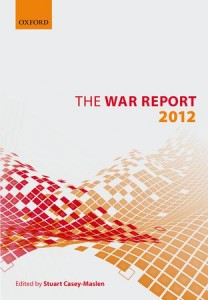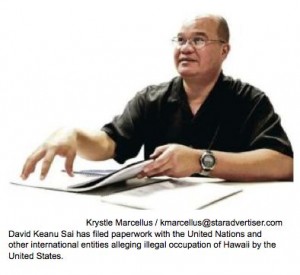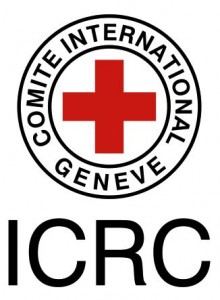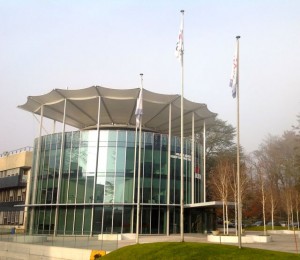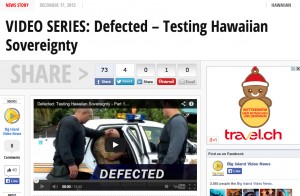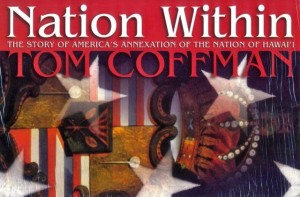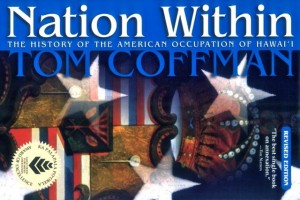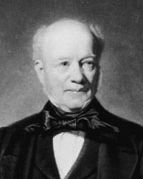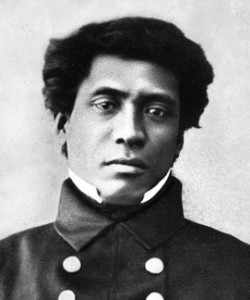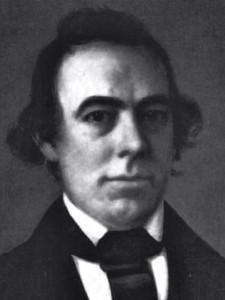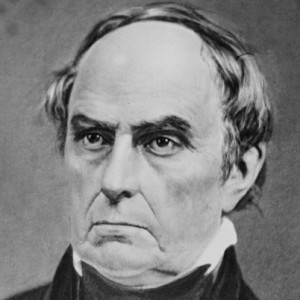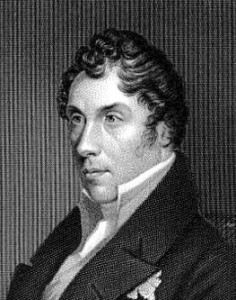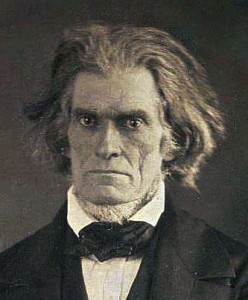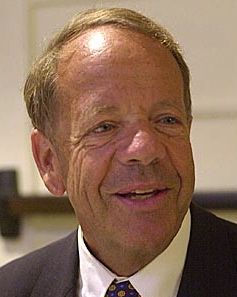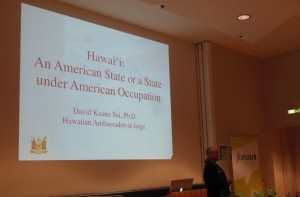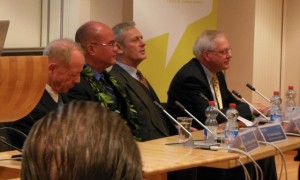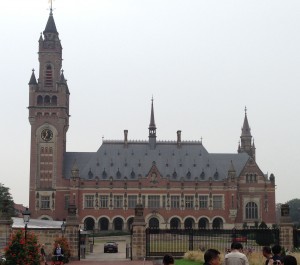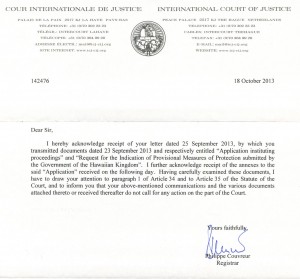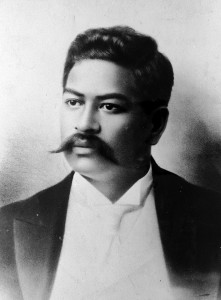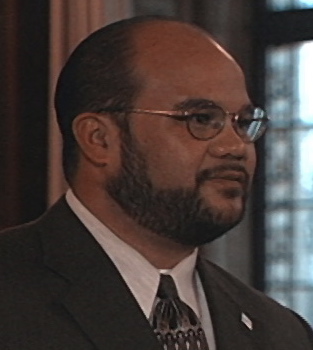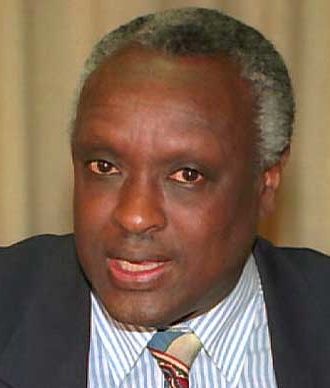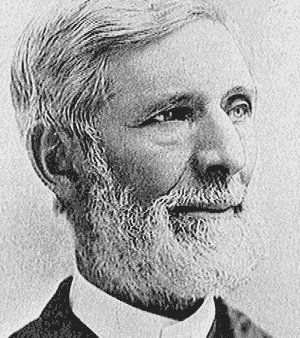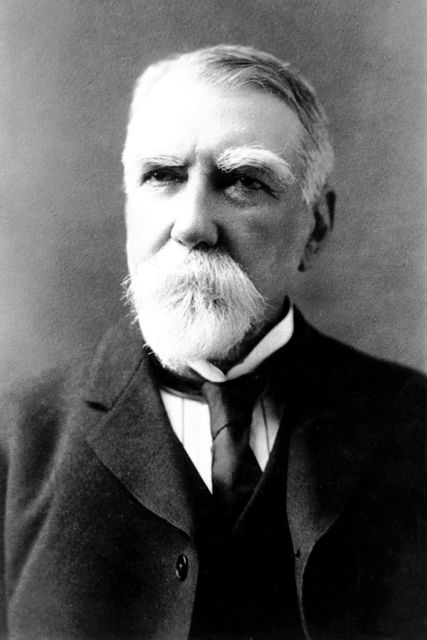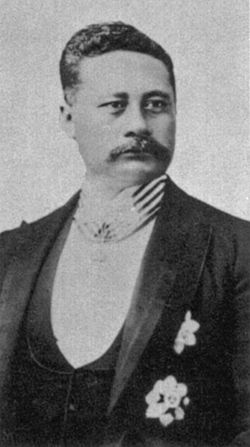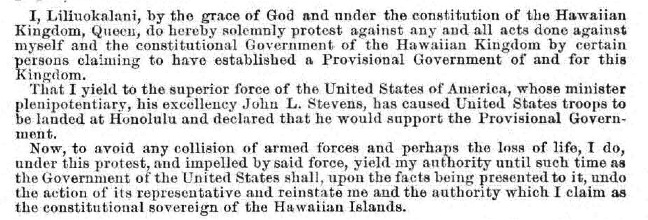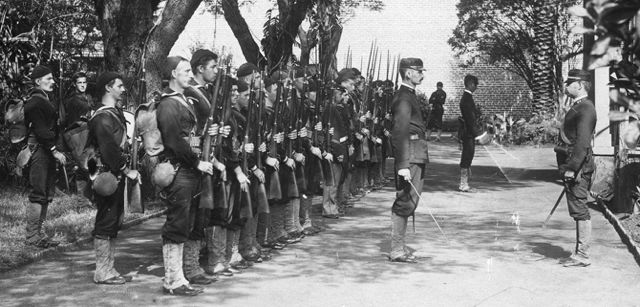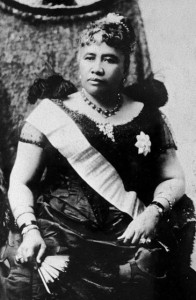 Queen Lili‘uokalani’s reign was fraught with political power struggles and rumors of overthrow. The 1890 McKinley Tariff Act created an economic depression. On January 14, 1893, the Queen proclaimed her intent to reinstate the lawful constitution in response to calls by the people and political organizations, in particular the Hui Kalai‘aina (Hawaiian Political Association).
Queen Lili‘uokalani’s reign was fraught with political power struggles and rumors of overthrow. The 1890 McKinley Tariff Act created an economic depression. On January 14, 1893, the Queen proclaimed her intent to reinstate the lawful constitution in response to calls by the people and political organizations, in particular the Hui Kalai‘aina (Hawaiian Political Association).
In reaction, Lorrin Thurston organized a small group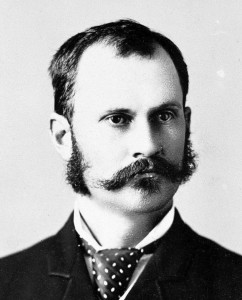 of insurgents into a Committee of Safety to plan for the ultimate takeover of the government and to secure annexation to the United States. The so-called Committee of Safety sought support from U.S. Minister John L. Stevens on January 16, 1893 to order the landing of U.S. troops to protect the insurgents while they prepared for the annexation of the Hawaiian Islands to the United States by a voluntary treaty of cession.
of insurgents into a Committee of Safety to plan for the ultimate takeover of the government and to secure annexation to the United States. The so-called Committee of Safety sought support from U.S. Minister John L. Stevens on January 16, 1893 to order the landing of U.S. troops to protect the insurgents while they prepared for the annexation of the Hawaiian Islands to the United States by a voluntary treaty of cession.
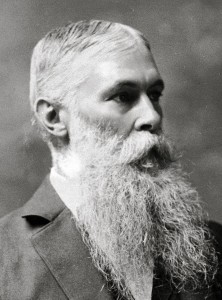 On January 17th the group declared themselves the Provisional Government with Sanford Dole as its president. Article 31 of the Hawaiian constitution provides, “To the [Queen] belongs the executive power.” Therefore, as the constitutional monarch, the Queen was vested with the faithful execution of Hawaiian law, and it was her duty to ensure that certain insurgents be apprehended by the police for
On January 17th the group declared themselves the Provisional Government with Sanford Dole as its president. Article 31 of the Hawaiian constitution provides, “To the [Queen] belongs the executive power.” Therefore, as the constitutional monarch, the Queen was vested with the faithful execution of Hawaiian law, and it was her duty to ensure that certain insurgents be apprehended by the police for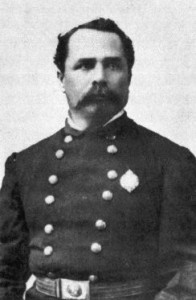 committing the crime of treason, being a violation of Chapter VI of the Penal Code. However, under threat of war by the presence of U.S. troops who were ordered by the U.S. diplomat Stevens to protect the insurgents, the police force, headed by Marshall Charles Wilson, could not apprehend the insurgents without bloodshed between the police and U.S. troops. Later that day, the Queen made the following assignment of executive power under protest, called the Lili‘uokalani assignment:
committing the crime of treason, being a violation of Chapter VI of the Penal Code. However, under threat of war by the presence of U.S. troops who were ordered by the U.S. diplomat Stevens to protect the insurgents, the police force, headed by Marshall Charles Wilson, could not apprehend the insurgents without bloodshed between the police and U.S. troops. Later that day, the Queen made the following assignment of executive power under protest, called the Lili‘uokalani assignment:
I, Lili‘uokalani, by the Grace of God, and under the Constitution of the Hawaiian Kingdom, Queen, do hereby solemnly protest against any and all acts done against myself and the constitutional Government of the Hawaiian Kingdom by certain persons claiming to have established a Provisional Government of and for this Kingdom.
That I yield to the superior force of the United States of America whose Minister Plenipotentiary, His Excellency John L. Stevens, has caused United States troops to be landed at Honolulu and declared that he would support the said Provisional Government.
Now to avoid any collision of armed forces, and perhaps the loss of life, I do this under protest, and impelled by said force yield my authority until such time as the Government of the United States shall, upon facts being presented to it, undo the action of its representative and reinstate me in the authority which I claim as the constitutional sovereign of the Hawaiian Islands.
Done at Honolulu this 17th day of January, A.D. 1893.
Lili‘uokalani, R.
Samuel Parker, Minister of Foreign Affairs.
Wm. H. Cornwell, Minister of Finance.
John. F. Colburn, Minister of the Interior.
A.P. Peterson, Attorney General.
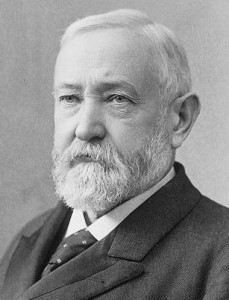 In complete disregard of the Queen’s protest and assignment of executive power, the Provisional Government and Secretary of State James Blaine signed a treaty on February 14, 1893 at Washington, D.C. President Benjamin Harrison submitted the treaty to the United States Senate for ratification in accordance with the U.S. Constitution. The U.S.
In complete disregard of the Queen’s protest and assignment of executive power, the Provisional Government and Secretary of State James Blaine signed a treaty on February 14, 1893 at Washington, D.C. President Benjamin Harrison submitted the treaty to the United States Senate for ratification in accordance with the U.S. Constitution. The U.S. 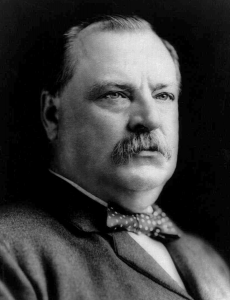 Presidential election already had taken place in 1892, with Grover Cleveland defeating the incumbent Benjamin Harrison. After his inauguration on March 4, 1893, President Cleveland received the Queen’s protest and assignment from Paul Neumann, former Hawaiian Attorney General, who, by a power of attorney, represented the Queen.
Presidential election already had taken place in 1892, with Grover Cleveland defeating the incumbent Benjamin Harrison. After his inauguration on March 4, 1893, President Cleveland received the Queen’s protest and assignment from Paul Neumann, former Hawaiian Attorney General, who, by a power of attorney, represented the Queen.
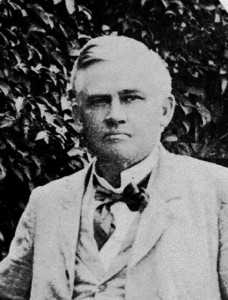 On March 9, 1893, Cleveland withdrew the treaty from the Senate and appointed James H. Blount as Special Commissioner, a former U.S. Representative from Georgia and former Chairman of the House Committee on Foreign Affairs, as special
On March 9, 1893, Cleveland withdrew the treaty from the Senate and appointed James H. Blount as Special Commissioner, a former U.S. Representative from Georgia and former Chairman of the House Committee on Foreign Affairs, as special 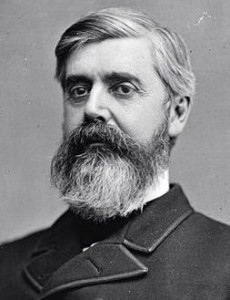 commissioner to investigate and report his findings to Secretary of State Walter Gresham. By accepting the Queen’s temporary assignment of executive power, President Grover Cleveland bound himself and his successors in the office to temporarily administer Hawaiian Kingdom law in accordance with Article 31 of the Hawaiian constitution until the executive power would be returned.
commissioner to investigate and report his findings to Secretary of State Walter Gresham. By accepting the Queen’s temporary assignment of executive power, President Grover Cleveland bound himself and his successors in the office to temporarily administer Hawaiian Kingdom law in accordance with Article 31 of the Hawaiian constitution until the executive power would be returned.
The investigation concluded that the United States diplomat and troops were directly responsible for the illegal overthrow of the Hawaiian government with the ultimate goal of transferring the Hawaiian Islands to the United States. Blount reported that, “in pursuance of a prearranged plan, the Government thus established hastened off commissioners to Washington to make a treaty for the purpose of annexing the Hawaiian Islands to the United States.” The report also detailed United States government actions that violated international laws as well as Hawaiian territorial sovereignty.

